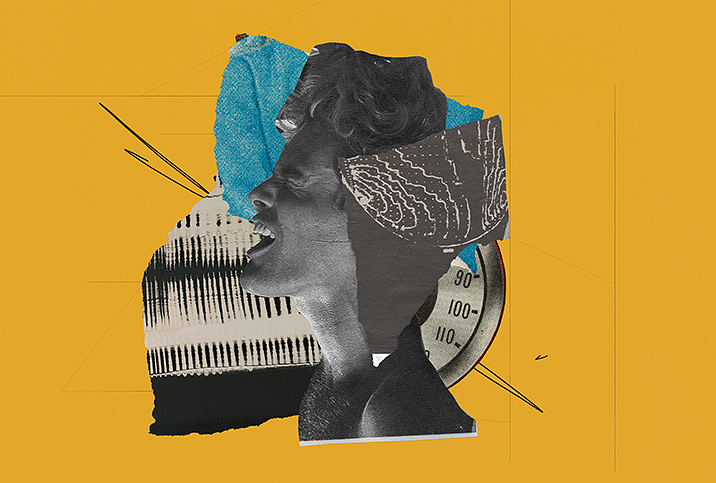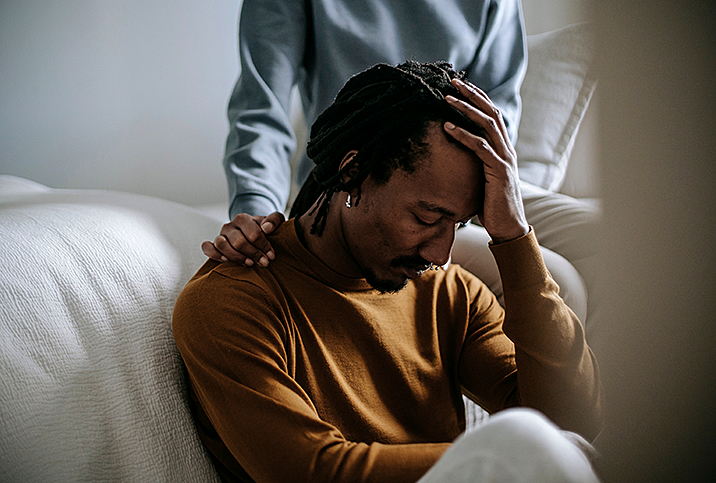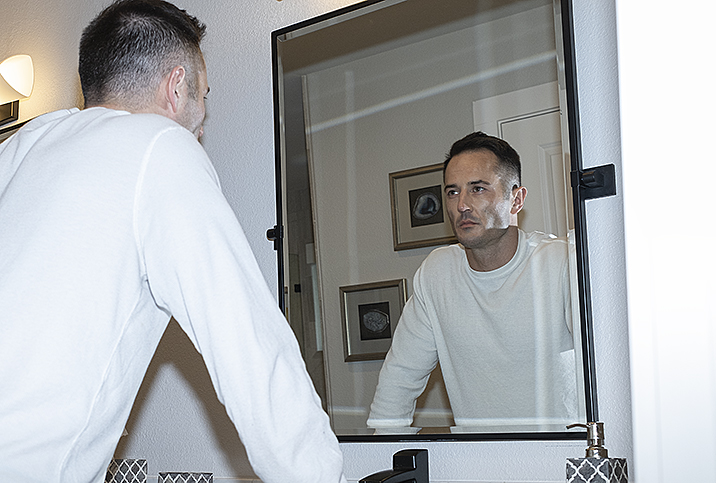The Connection Between Traumatic Brain Injury and ED

Sustaining a traumatic brain injury (TBI) can affect every aspect of a person's overall well-being—including their sexual health.
The brain plays a big role in arousal, so the way a person experiences and expresses their sexuality can completely change when the brain is injured. People with a TBI often experience reduced libido and erectile dysfunction (ED) and may also start behaving sexually at inappropriate times as a result of the changes in the brain caused by the injury.
For many men, dealing with erectile dysfunction after a TBI is a source of embarrassment. However, it's important to know that there is nothing to be ashamed of—reaching out for help can lead to effective treatment and leaning on loved ones can provide emotional comfort.
How a TBI can affect sexual function
A TBI, when it is acquired after birth, typically occurs when the brain is damaged due to a physical injury to the head, infection, disease or lack of oxygen. Depending on the area of the brain that's injured and the severity of the injury, thought patterns, personality, body function and overall behavior may change.
About half of people with a TBI have reduced libido, while 40 to 60 percent of men with a TBI experience ED following their injury, according to medical experts. Additionally, up to 40 percent of people with a TBI report difficulty reaching orgasm. Considering sexual function and arousal involve several areas of the brain, these statistics should come as no surprise.
To fully understand how a TBI can contribute to ED, it's useful to know the science behind erections. The two main causes of erections, reflex and psychogenic, typically work together simultaneously, with a combination of the two leading to an erection.
A reflex erection occurs when the penis is directly, physically stimulated. This type of erection involves nerve circuits in the lower part of the spinal cord without any help from the brain. Psychogenic erections, on the other hand, originate in the brain as a result of internal thoughts and fantasies or the perception of outside, erotic stimulus. This internal reaction to thoughts or outside stimuli triggers the brain to send chemical messages down the spinal cord, which leads to the dilation of blood vessels in the penis, causing an erection.
So while achieving an erection is not impossible after a TBI, some men may find it more difficult to get fully aroused. Aside from the physical damage, the emotional toll of a TBI, the medications used to treat it, reduced confidence and other health factors may also contribute to ED in the aftermath of the injury.
Getting back in the sack after a TBI
People who have a TBI have usually undergone some sort of physical trauma. It's important to allow yourself ample time to heal and recover. Remember—there's no need to rush.
But when you are feeling ready and able to resume your intimate life, be sure to talk to your doctor before moving forward just to make sure you are physically ready to have sex. Once you get the green light, take your time getting back into the swing of things. This is an important time to communicate with your partner about how both of you are feeling. Be open with each other about what you want to do, how much you want to do and any possible fears.
Mentally prepare yourself for some road bumps along the way. If you suspect any of your medications may be contributing to your sexual dysfunction, talk to your doctor about alternatives or switching to a lower dose.
Sex may be different than it was before your TBI and that's OK. Place your focus on intimacy with your partner and overall pleasure—both physically and emotionally—rather than on speed, technique or a desired outcome. It may take some time to feel confident again, but with patience, communication and a focus on closeness, you'll be well on your way to a fulfilling sex life.


















